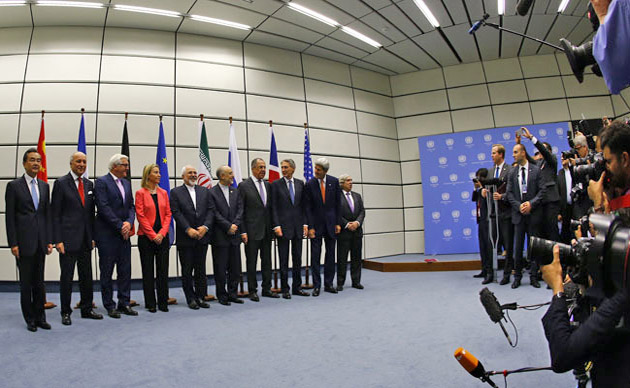MEDIA RELEASES
AIJAC deeply concerned about Iran nuclear deal
July 15, 2015

AIJAC is deeply concerned that the deal announced between Iran and the P5+1 will further destabilise the Middle East. It seems likely that it will only delay but not prevent Iran’s ability to obtain nuclear weapons, while also providing Teheran with a large amount of new resources to continue its efforts at destabilising regional neighbours and in supporting terrorism. The deal is likely to contribute to a nuclear arms race amidst a volatile region, while worsening the violent sectarian conflicts which are already devastating the Middle East.
AIJAC’s Executive Director Dr Colin Rubenstein said: “This deal will unravel the international sanctions against Iran which have been the most important component in slowing Iran’s nuclear program and bringing it to the table for negotiations while licensing Iran to be a nuclear threshold state poised to build nuclear weapons whenever the regime feels the time is right. The ‘managed’ inspection arrangements do not look robust enough to guarantee that cheating by Iran – which has been present in all past nuclear agreements with Teheran – can be quickly and decisively caught. Meanwhile, the hope that international sanctions will be able to simply ‘snap back’ if Iran transgresses the agreement appears highly unlikely to work in practice, once sanctions are eased and business relations with Iran start to normalise.
“This deal risks empowering a tyrannical regime that is a leading state sponsor of global terrorism, a serial proliferator in violation of international law, and a major source of regional destabilisation – as well as one which continues to commit grave human rights abuses. AIJAC calls upon both the US Congress, and all governments of goodwill around the world, including Australia’s, to subject the deal to maximum scrutiny and meticulous consideration before its enactment, and the most careful and strict monitoring and enforcement in the event it is enacted. This is too fateful an issue to allow eagerness to reach a diplomatic resolution to undermine the essential interests of the global community in preventing proliferation and destabilisation in the world’s most volatile and dangerous region,” he concluded.
For more information, contact AIJAC on (03) 9681 6660
Tags: International Security, Iran





